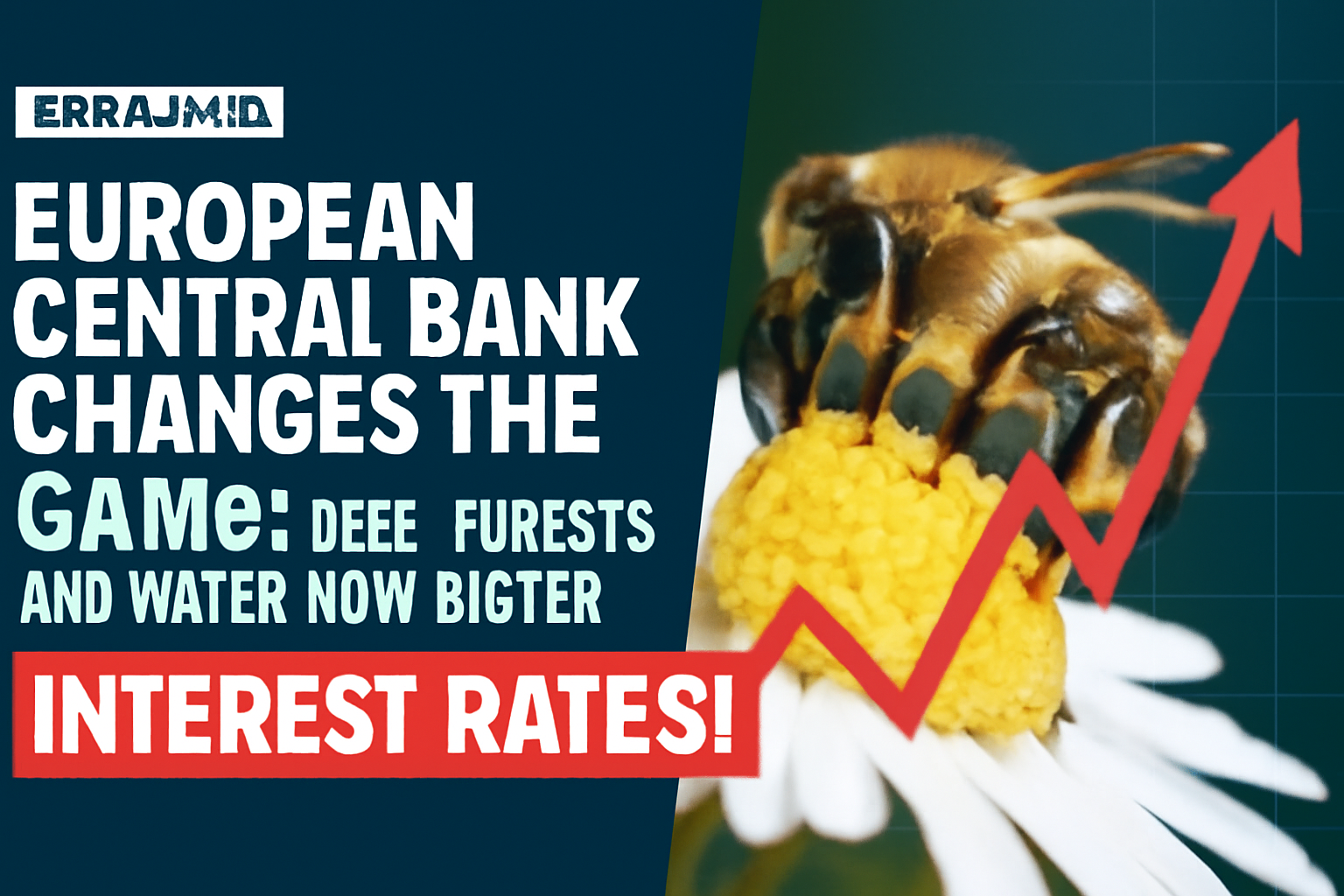Bees, Forests, and Water Now Decide Interest Rates? Yes, You Read That Right! The European Central Bank (ECB) has made a historic pivot that will shake the worlds of finance and ecology. Unlike previous rules where interest rates depended solely on economic indicators like inflation and employment, now the state of nature – the health of bees, forests, and water – will be taken into account!
What’s Happening?
At a conference in Sintra on June 30, ECB President Christine Lagarde announced that nature degradation will become a key factor in monetary decision-making. This means future interest rates will depend on how healthy bees are and how effectively forests absorb carbon dioxide.
Why Does It Matter?
The Eurozone economy faces serious risks from climate change and natural resource shortages. Nearly 15% of the Eurozone’s GDP is at risk due to surface water scarcity, and 34% of corporate loans are directed to sectors exposed to high water stress. Oxford University estimates that nature degradation could reduce the UK’s GDP by 12% in the coming years – twice as much as the 2008 financial crisis!
How Will This Affect Serbia and Others?
Although Serbia is not in the Eurozone, this change will have a direct impact. Serbian banks operating with the EU will have to adjust their loans to new ecological standards. Companies that fail to meet these standards will face tougher financing conditions, potentially harming their competitiveness. This signals that countries aspiring to EU membership must adapt their monetary and financial systems to these new standards.
The First Steps Are Already Taken
From October 2022 to July 2023, the ECB has already started steering reinvestments of corporate bonds towards companies with better climate performance. Simply put, companies that pollute less get cheaper money.
Criticism and Praise
Of course, this radical change has not gone without criticism. Traditionalists argue central banks should focus only on inflation and employment, not ecology. Political conservatives say decisions about nature should not be made by unelected officials. On the other hand, environmental activists welcome this and believe the ECB is finally using its mandate to fight climate change.
What’s Next?
Will this experiment succeed? The ECB will need to develop new models and tools and convince the public that caring for bees and forests can help control inflation. One thing is clear – the era of ignoring ecological factors in monetary policy is over.
Conclusion
Interest rates depending on biodiversity? Yes, that’s the new reality. This change could completely transform how companies value natural resources and how countries plan their economic development.
If you think this is a crazy idea or a brilliant innovation, feel free to drop a comment and share your thoughts – maybe bees really do know better than economists!
Source: Blic Biznis









